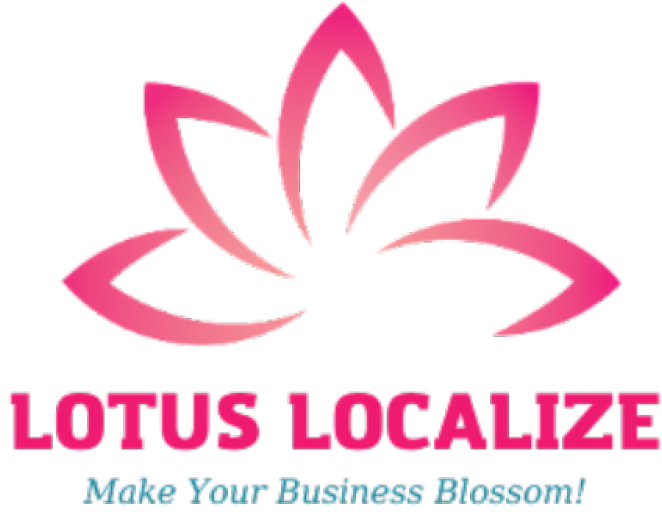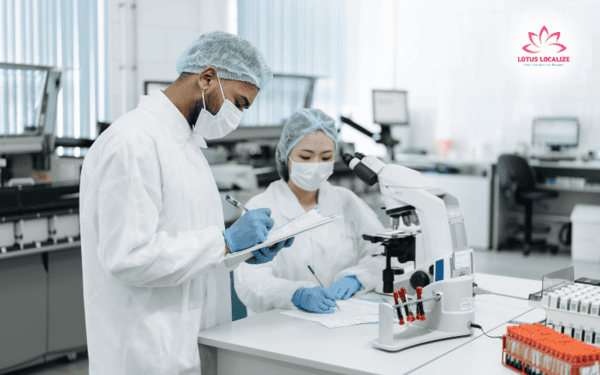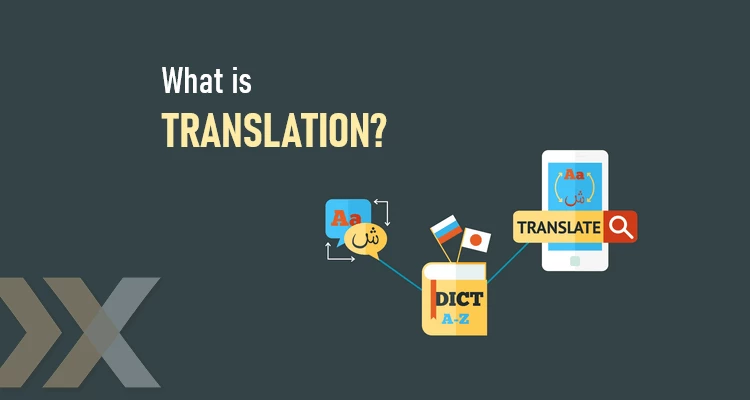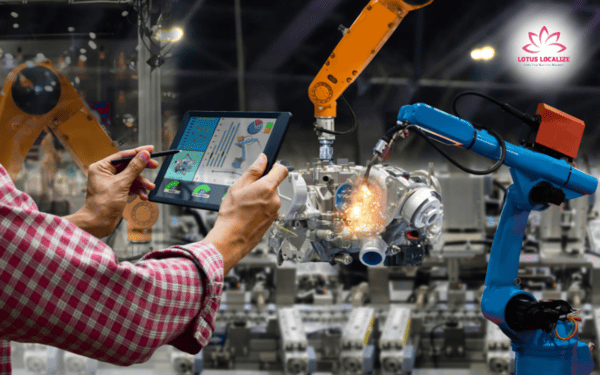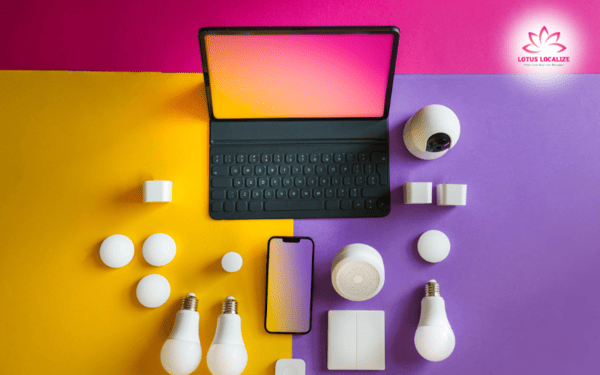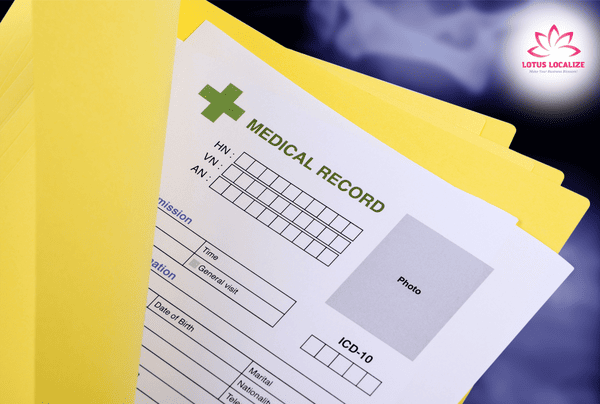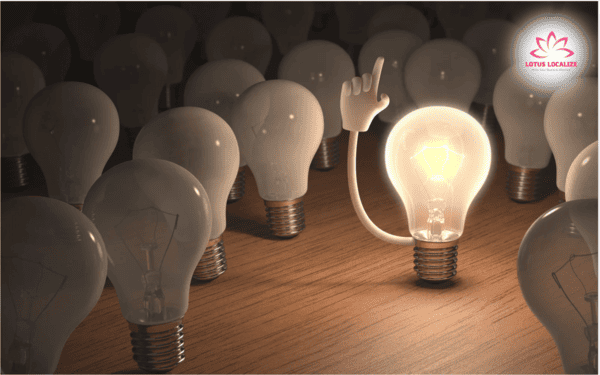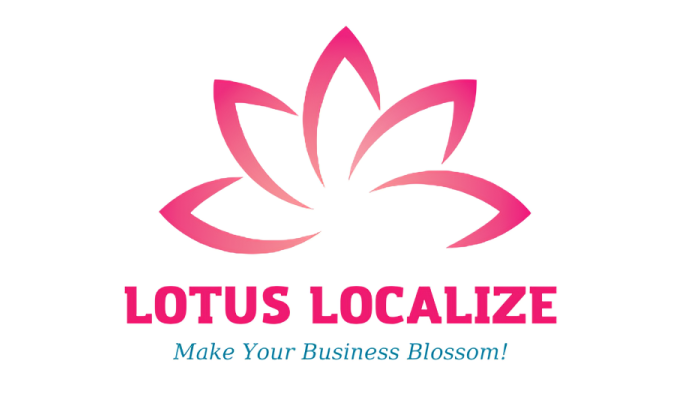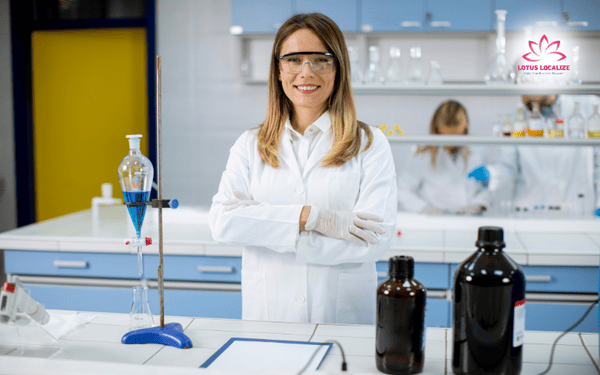
Challenges and solutions in biomedical translation for healthcare and pharmaceutical industries
In an era where healthcare and pharmaceuticals are increasingly globalized, effective communication across languages has become indispensable. Biomedical translation acts as a critical bridge, connecting stakeholders in diverse regions while ensuring clarity, accuracy, and compliance. From translating clinical trials to adapting public health campaigns, this specialized field enables vital information to transcend linguistic and cultural barriers. Without precise biomedical translation, the safety, efficacy, and accessibility of healthcare innovations could be compromised.
Understanding biomedical translation
Biomedical translation is a specialized field that bridges the gap between science and language. It involves the accurate translation of medical, pharmaceutical, and clinical documentation from one language to another. This process demands not only linguistic proficiency but also a deep understanding of medical and scientific terminology to ensure precision and clarity.
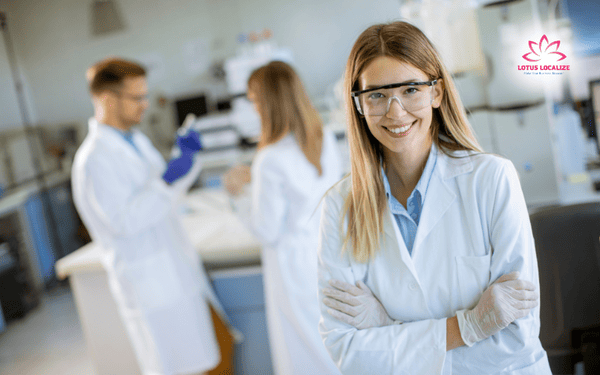
In the healthcare and pharmaceutical industries, biomedical translation plays a crucial role in facilitating communication across diverse markets. Whether it’s translating clinical trial documents, patient information leaflets, or drug packaging, the accuracy of translations can significantly impact patient safety and regulatory compliance.
Moreover, the globalization of healthcare and pharmaceuticals has amplified the demand for high-quality biomedical translation. Companies are now reaching international markets more than ever before, making the need for flawless and culturally appropriate translations essential to their success.
Read more: Why pharma translation matters in today’s global healthcare landscape
Fields of application for biomedical document translation
Biomedical translation ensures effective communication in highly specialized sectors of healthcare and pharmaceuticals. Its key applications include:
Clinical research
Accurate translation of trial protocols, informed consent forms, and investigator brochures is crucial for the success of clinical trials. Misinterpretations can cause delays, regulatory setbacks, or invalid trial results. Precise translations ensure participants and stakeholders across countries understand protocols, risks, and benefits, enabling informed consent and compliance.
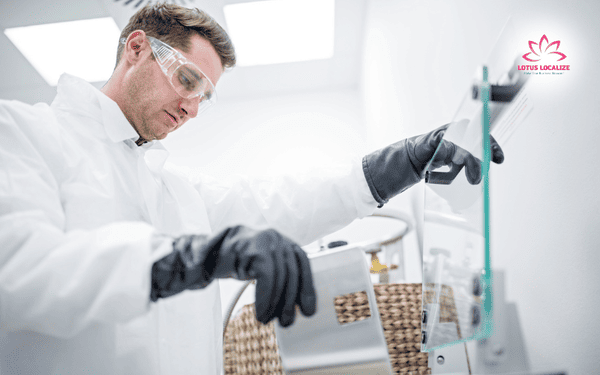
Pharmaceutical product documentation
Translating drug labels, patient leaflets, and regulatory submissions ensures medications meet international standards. Clear and accurate translations convey critical information like dosage, side effects, and contraindications, avoiding misuse or safety issues while complying with regional regulations.
Public health campaigns and medical device manuals
Biomedical translators support public health initiatives by simplifying complex medical information for health campaigns or safety guidelines. For medical devices, translating user manuals ensures safe and correct use across diverse linguistic and cultural contexts, benefiting both healthcare professionals and patients.
These applications highlight the intricate responsibility of biomedical translators in providing specialized expertise that bridges the gap between the highly technical language of medicine and the practical communication needed across various regions and cultures. Their role ensures not only the accuracy and clarity of information but also the safety and well-being of patients, healthcare providers, and researchers worldwide. Given the complexity of biomedical terminology and the potential consequences of errors, professional translators with a deep understanding of both medical science and linguistic nuances are crucial to maintaining the integrity of the healthcare and pharmaceutical industries.
Read more: The best medical device translation: Key to compliance and global expansion
Barriers to effective biomedical document translation
Despite its importance, biomedical document translation faces several challenges that can impact accuracy and reliability:
Complex medical terminology
Medical terms often have nuanced meanings and may vary in usage across languages, making precise translation a demanding task. Without a deep understanding of both source and target languages, mistranslations can occur, leading to serious consequences, especially in patient safety, clinical trials, or pharmaceutical usage.
Solution: Partner with qualified medical linguists who possess expertise in both the source and target languages as well as subject-matter knowledge. Incorporate glossary creation and terminology management tools to ensure consistency across documents.

Cultural adaptation
Biomedical translation goes beyond converting words; it’s about conveying meaning in a culturally appropriate manner. Some medical concepts or terminologies may not have direct equivalents in the target language, requiring creative yet accurate adaptations to ensure the message is relevant and understandable for the target audience.
Solution: Employ translators skilled in localization to adapt content appropriately to the target audience while preserving accuracy and intent. Conduct back translation or cultural reviews to ensure that the content resonates effectively within the target culture.
Regulatory requirements
Translators must adhere to strict guidelines set by organizations like the FDA, EMA, or WHO. These regulations require a deep knowledge of industry standards, and failure to meet them can result in legal and financial consequences, such as delays, recalls, or compliance issues.
Solution: Work with translation professionals who are familiar with global regulatory frameworks and documentation standards. Use quality assurance tools and processes such as ISO-certified workflows to maintain compliance.
Effective biomedical translation is essential for ensuring the accuracy, safety, and compliance of medical and pharmaceutical information. Overcoming the challenges of complex terminology, cultural adaptation, and regulatory requirements is crucial for maintaining the integrity of the healthcare and pharmaceutical industries.
Skills and knowledge required for biomedical translators
To excel in biomedical translation, professionals must possess a distinctive blend of skills and expertise to ensure accuracy, clarity, and precision. The demands of translating complex medical and scientific content require a deep understanding of both linguistic and technical fields. The key skills and knowledge areas include:
Language proficiency
- Advanced proficiency in both the source and target languages is fundamental. Translators must be fluent in the nuances of grammar, syntax, and semantics to ensure that the translation is not only linguistically accurate but also natural and coherent in the target language.
- This proficiency goes beyond simple translation; it involves a deep understanding of the cultural context, idiomatic expressions, and language-specific conventions, ensuring the text reads as though it was originally written in the target language.
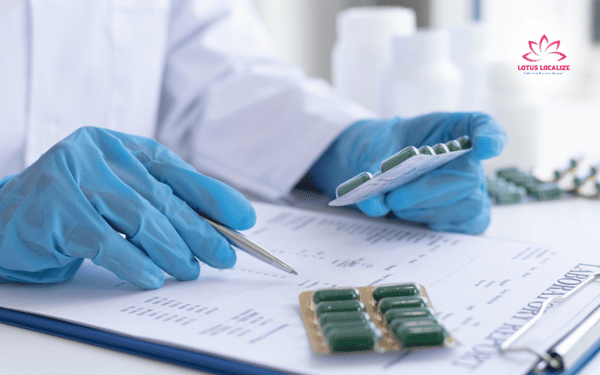
Medical and scientific knowledge
- Biomedical translators must have a solid grasp of medical and scientific terminology, concepts, and practices specific to healthcare, pharmaceuticals, and clinical research. This knowledge allows them to understand and interpret the complex terminology found in medical documents such as clinical trial protocols, pharmaceutical product documentation, and patient information leaflets.
- Understanding the context and application of terms is critical; a slight misunderstanding or misapplication of a medical term can lead to errors with serious consequences, particularly in clinical trials or drug labeling.
Attention to detail and research skills
- Biomedical translators must exhibit a high level of attention to detail. Often, they encounter terms or concepts that require additional research or clarification. The precision of their work directly affects patient safety, regulatory compliance, and clinical accuracy.
- The ability to effectively research unfamiliar terms or emerging medical developments is essential. Translators must stay up to date with the latest advancements in medicine, technology, and regulatory practices. This includes keeping abreast of changes in medical guidelines, new drug releases, treatment methodologies, and emerging health issues that may impact the translation of biomedical texts.
- Research skills are also crucial for verifying the accuracy of translated content, ensuring that it aligns with the latest standards and practices in the medical field.
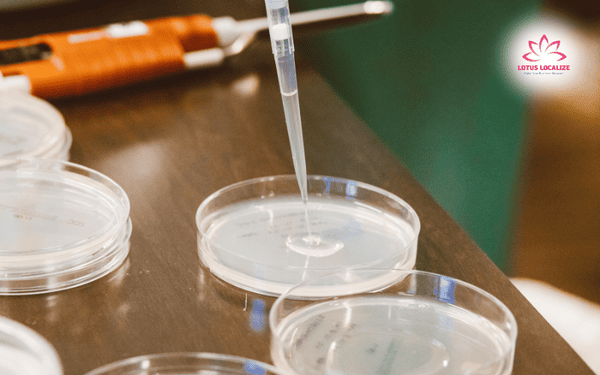
Ethical understanding
- Biomedical translators must have a clear understanding of the ethical implications of their work, particularly when translating sensitive medical information. They must ensure that all translations preserve the confidentiality and integrity of patient data and comply with privacy laws and regulations such as HIPAA (Health Insurance Portability and Accountability Act) in the U.S.
- Additionally, translators must be aware of the potential consequences of inaccuracies in medical translations, as errors can impact patient care, treatment outcomes, and regulatory compliance.
Cultural competence
- Cultural competence is another essential skill, particularly when translating documents for international markets. Translators must be sensitive to the cultural and social factors that may influence how medical information is perceived and understood in different regions.
- This includes adapting content to meet the language norms, values, and expectations of diverse audiences while maintaining the integrity and accuracy of the original text.
Familiarity with industry-specific guidelines and standards
- Biomedical translators should be familiar with the guidelines and regulations specific to the medical and pharmaceutical industries, including the requirements set by regulatory bodies such as the U.S. Food and Drug Administration (FDA), European Medicines Agency (EMA), or other national and international authorities.
- Adhering to these standards ensures that translations meet legal and regulatory requirements, preventing potential issues that could arise from non-compliance.
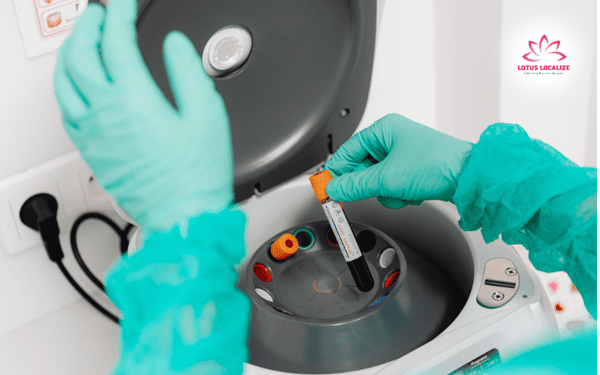
Technology skills
- Proficiency in using translation software tools, including Computer-Assisted Translation (CAT) tools, is increasingly important in biomedical translation. These tools help maintain consistency, improve efficiency, and facilitate collaboration between translators working on large, complex projects.
- Translators must also be comfortable with the technology used in the healthcare and pharmaceutical sectors, such as electronic health records, medical databases, and regulatory submission systems, as these often provide important references or context for translations.
These diverse skills and knowledge areas combine to create a professional who is not only proficient in the language but also deeply familiar with the scientific, ethical, and cultural considerations critical to ensuring the highest quality biomedical translations. This level of expertise is essential for ensuring that translations accurately reflect the complexity of the medical field and serve the needs of patients, healthcare providers, and researchers around the world.
Standards and regulations in biomedical translation
Compliance with industry standards and regulations is a cornerstone of biomedical translation. Translators must navigate:
- National and international guidelines: Different countries have their own set of rules governing the translation of medical and pharmaceutical documents, such as those from the FDA or EMA.
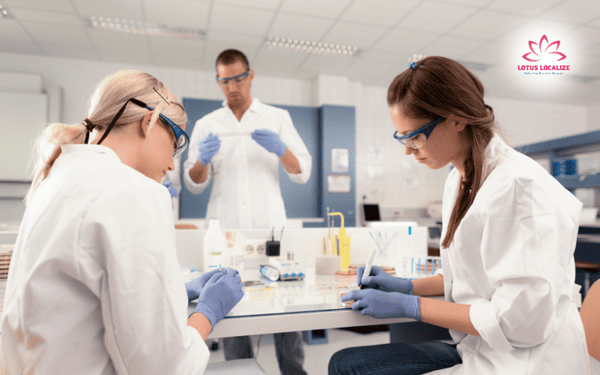
- ISO standards: ISO 17100 outlines requirements for translation services, including qualifications for translators, project management, and quality assurance. Adhering to these standards ensures consistency and reliability.
- Ethical considerations: Maintaining patient confidentiality and avoiding conflicts of interest are vital for building trust and ensuring the integrity of the translation process.
Lotus Localize brings trust-worthy biomedical translation services
At Lotus Localize, we understand the critical role biomedical translation plays in the healthcare and pharmaceutical industries. That’s why we’ve assembled a team of highly skilled translators with expertise in both language and medical science. Our professionals are equipped to handle even the most complex and sensitive projects with precision and care.
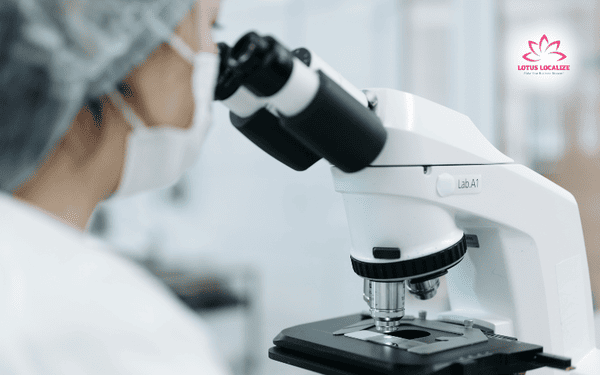
Our biomedical translation services cover a wide range of needs:
- Clinical trial documentation: Translation of protocols, consent forms, and regulatory submissions ensures compliance and clarity.
- Patient education materials: Providing accurate and accessible translations for diverse populations.
- Pharmaceutical product information: Adhering to industry standards while ensuring patient safety and understanding.
What sets Lotus Localize apart is our commitment to quality and reliability. We employ a rigorous quality control process that includes multiple rounds of review by subject-matter experts. This approach guarantees that our translations are not only accurate but also culturally appropriate and contextually relevant.
In the high-stakes world of healthcare and pharmaceuticals, precision and cultural sensitivity in communication are paramount. Biomedical translation serves as a vital tool for ensuring that medical knowledge, treatments, and innovations can reach global audiences effectively and safely. By overcoming linguistic and regulatory barriers, this specialized service empowers businesses to expand their reach, improve patient outcomes, and drive scientific progress.
With Lotus Localize as your trusted partner, you gain access to a team that combines linguistic excellence, medical expertise, and unwavering attention to detail. Let us help you navigate the complexities of biomedical translation, ensuring that your message resonates clearly and accurately, no matter the language or audience.
If you have any questions or need assistance with translation services for many industries: life science translation, education translation, technology translation, financial translation, marketing translation, manufacturing translation, government translation,… and interpretation services, localization services: game localization, software localization, website localization,… please contact Lotus Localize immediately at 0866 224 968 or visit the website: lotus-localize.com for advice on the best solutions!
QUALITY PROMISE
Lotus Localize offers consistent, high-quality service delivery in all customer engagements. Our in-house translators and staff adhere to well-established business processes, allowing us to communicate properly, deliver on time, and surpass client expectations.
